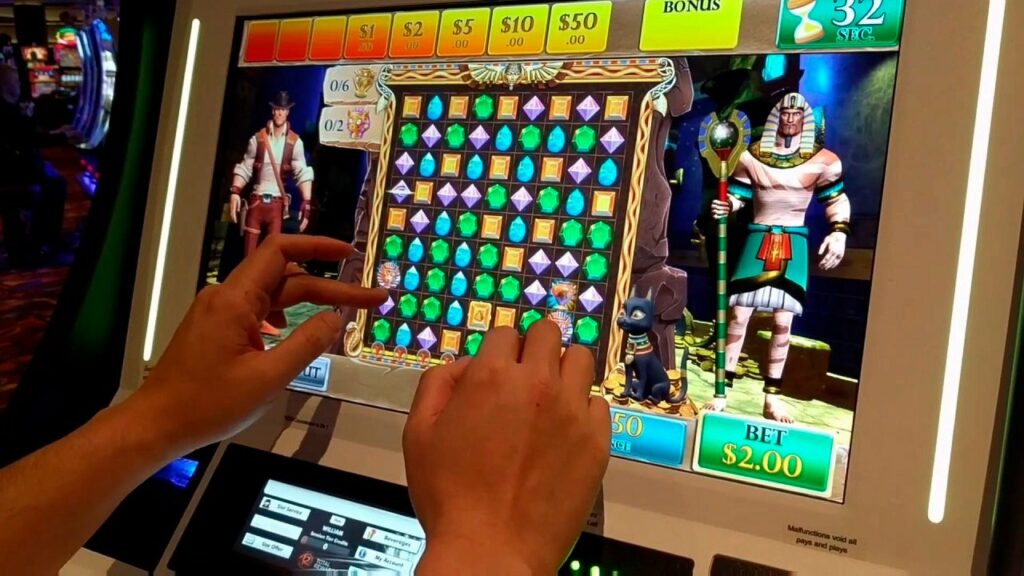The introduction of Skill-Based Gambling Machines (SGMs), incorporating interactive skill-based elements, has sparked concerns in Australia about exacerbating gambling harm by fostering illusions of control and promoting continued engagement among individuals already struggling with gambling issues.
According to a new study funded by Gambling Research Australia (GRA), these machines provide an illusion of control that significantly amplifies gamblers’ convictions that they possess the ability to influence game outcomes.
This perception has led many individuals to overestimate the role of skill in determining their wins and losses, with some viewing it as a means to gain a competitive advantage. However, this heightened belief in control could potentially expose people to heightened risks of enduring substantial long-term losses.
The study titled ‘Skill-Based Gambling in Australia’ was commissioned to investigate how these innovations impact gambling behavior and may contribute to gambling harm. The study was undertaken by the Central Queensland University.
SGMs differ significantly from traditional electronic gaming machines (EGMs), as they incorporate an element of player skill or perceived skill, rather than relying solely on chance to determine wins and losses.
Alison Parkinson, Director of the NSW Office of Responsible Gambling, said SGMs had slowly been introduced in the US over the last decade and only recently introduced in Australia, where only a small number are approved on a trial or ongoing basis.
The study found that the introduction of SGMs has been an effort to “future-proof” the gambling industry by enticing a younger demographic, who were interested in video games, especially men.
Many SGMs were either licensed versions of classic arcade or video games or games created to resemble them. However, unlike video games, the research likened SGMs to carnival games where the outcome appeared to be governed by skill but was largely influenced by chance.
“Skill-based gambling machines represent a real change to how gaming machines operate. As with any new product, it’s important we understand whether these innovations may increase the risk of gambling harm. This study shows that skill has little impact on the outcome of these games, and that participants should be aware of their real chances of winning,” Parkinson said.
The study found people who already played EGMs were the most attracted to SGMs but the games also have the potential to attract new players. Younger people and people with gambling problems were likely to be attracted to all features of these games. The findings are expected to contribute to how these SGMs should be handled by regulators.
GRA is a national gambling research partnership between Commonwealth, State and Territory governments. GRA funds projects of national significance to develop an effective evidence base to underpin future gambling policy and regulatory decisions. The NSW Government’s contribution is funded by the NSW Responsible Gambling Fund.
Examples of SGMs include Pop Fish (where players tap and match three or more bubbles to win), Pacman Cash Chase (with the player aiming to avoid the ghost characters while eating as many pellets as possible), Mystery of the Secret Temple (requiring players to match three gemstones to trigger a bet with a random outcome) and Missile Control (where players defend their city by shooting down enemy missiles based on the classic Atari game, Missile Command).
The only SGM to be approved in more than one Australian jurisdiction is Pop Shots Witches Coven. There are no SGMs currently operating in NSW, Victoria, the ACT, Tasmania, the Northern Territory, or South Australia. A small number of SGMs operate in casinos in Queensland and Western Australia; however, there are no SGMs operating in any pubs or clubs in either of these states.
Key findings of the study are:
- People who already play EGMs are most attracted to SGMs.
- People who are young, male and who play videogames are likely to gamble more intensively on SGMs.
- Participants reported being attracted to SGMs by their dynamic audio-visual effects, interactivity, novelty aspects and the challenge involved.
- Participants had a very poor understanding that skill has little actual impact on game outcomes for SGMs. Most participants overestimated, while the rest were unsure of, the degree to which skill influenced wins and losses.
- SGMs are likely to increase gambling harm because of these illusions of control and encourage repeated play among those already experiencing a gambling problem.
- There is no unique opportunity lost in temporarily forgoing SGMs as they represent only a small fraction of the EGM market in places like Nevada and New Jersey where they are widely available.
- SGMs were said by industry regulators in the United States to be an attempt to “future-proof” the industry by attracting younger generations interested in video games. SGMs with intellectual property from video games or those based on board games may appeal to those who do not usually gamble.
